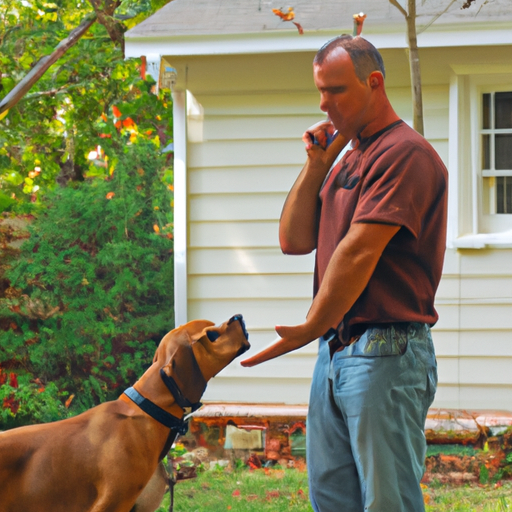Dear caregiver, training your dog to stop barking requires patience, understanding, and consistency. It’s not an overnight process, but with the right techniques, you can achieve a peaceful, barking-free household in no time.
Understanding Why Dogs Bark
Before we dive into the techniques, it’s crucial to understand why dogs bark. Like human beings, dogs use barking as a form of communication. They bark when they’re excited, anxious, bored, or seeking attention. Understanding the underlying cause of your dog’s excessive barking can help you address the issue effectively.
Training Techniques to Stop Barking
1. Ignore the Barking
If your dog barks to get your attention, simply ignoring them might do the trick. Dogs learn quickly. If they realize that barking doesn’t result in any reward – like your attention – they might stop.
2. Divert Attention
In case your dog is barking at something specific, try to divert their attention. This could be through a toy, a command, or a treat.
3. Use the Quiet Command
Teaching your dog a “quiet” command can be incredibly useful. Start by saying “quiet” when they’re barking. Once they stop, even for a second, reward them with a treat.
4. Remove or Modify the Barking Trigger
If you’ve identified what triggers your dog’s barking, try to remove or modify that trigger. For instance, if they bark at people passing by the window, try closing the blinds or moving your dog to another room.
5. Use a Bark Collar
As a last resort, a bark collar can be used. But, it should only be considered under the guidance of a professional trainer or a vet.
Key Tips for Success
Here are few essential tips to keep in mind throughout your training journey.
- Be Consistent: Ensure everyone in the house follows the same rules and commands.
- Be Patient: Changing behavior takes time. Don’t get frustrated if progress seems slow.
- Reward Good Behavior: Always reward your dog when they stop barking. It could be through treats, praises, or petting.
Common Mistakes to Avoid
While training, avoid these common mistakes.
- Don’t Yell: Yelling might make your dog think you’re joining in, which could make them bark even more.
- Don’t Punish: Punishing your dog for barking can lead to anxiety, which might exacerbate the problem.
When to Seek Professional Help
If despite your best efforts, your dog continues to bark excessively, it might be time to seek professional help. A professional trainer or a behaviorist can provide personalized training methods and guidance.
FAQ
Q: How long does it take to train a dog to stop barking?
A: It depends on the dog and the cause of the barking. But with consistency, you should start seeing improvements within a few weeks.
Q: Can I train an older dog to stop barking?
A: Yes, older dogs can be trained to stop barking. The process might take longer, but it’s definitely possible.
Q: My dog barks at night. What can I do?
A: Try to figure out what’s causing the barking. It could be due to loneliness, boredom, or external noises. Addressing the cause should help reduce the barking.
Q: Is using a bark collar safe?
A: A bark collar should be a last resort and used only under professional guidance. It’s always better to try other training methods first.
In conclusion, training your dog to stop barking is about understanding their needs and teaching them alternative ways to express themselves. With patience and consistency, a peaceful household is within reach. Let’s embark on this training journey together, for you and your beloved pet.



